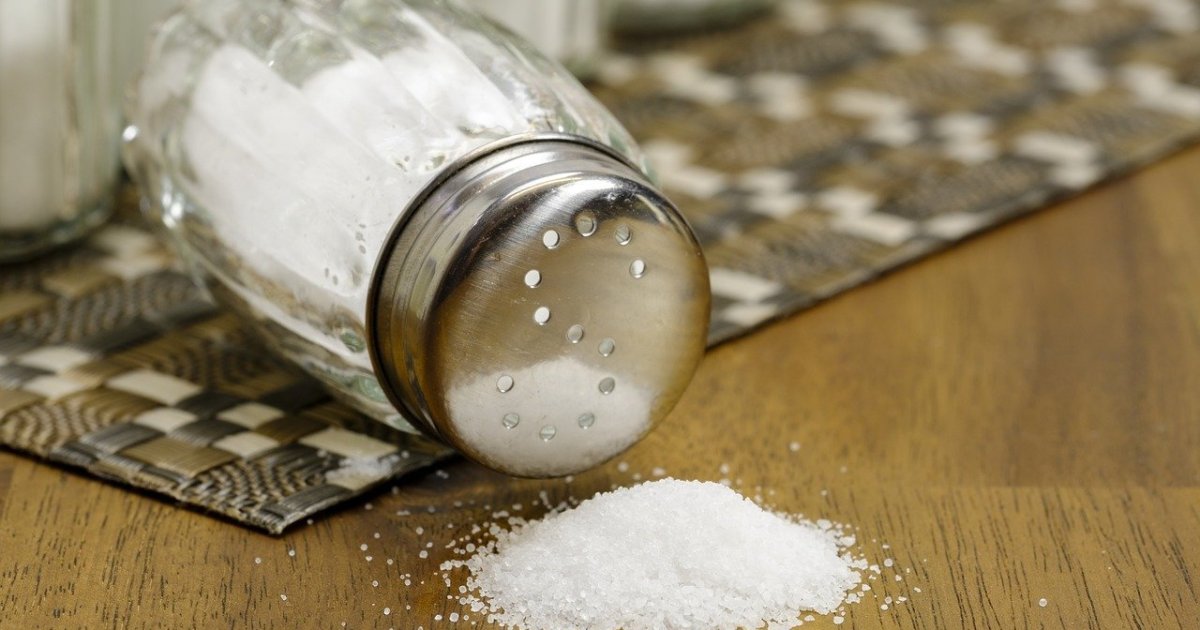Salt and black pepper are inseparable companions, and they are usually added to many foods, so what is the maximum amount allowed to be eaten, and which is better?
the salt
We start with salt, and its scientific name is sodium chloride (NaCl), which provides the body with sodium, which is "one of the essential nutrients necessary for maintaining plasma volume, acid-base balance, transmission of nerve impulses, and normal cell function", according to the World Health Organization.
Conversely, excessive sodium is associated with negative health outcomes, including high blood pressure.
Salt facts
According to the World Health Organization, it:
High sodium consumption (more than 2 grams per day, equivalent to 5 grams of salt per day) and inadequate potassium intake (less than 3.5 grams per day) contribute to high blood pressure and increase the risk of heart disease and stroke.
The main source of sodium in our diet is salt, although it may come from sodium glutamate, which is used as a spice in many parts of the world.
?
Most people overindulge in salt by an average of 9-12 grams per day, or about double the recommended maximum intake level.
?
Eating less than 5 grams of salt per day for adults helps lower blood pressure and reduce the risk of cardiovascular disease, stroke and coronary heart attack.
The main benefit of reducing salt intake is the corresponding lowering of blood pressure.
?
An estimated 2.5 million deaths annually could be avoided if global salt consumption were reduced to the recommended level.
Salt sources
Salt in the diet may come from processed foods, either because they are particularly high in salt (such as ready meals, processed meats such as bacon and salami, cheese, salty snack foods, and instant noodles, among others), or because they are frequently consumed and in large quantities (such as bread and processed grain products).
Salt is also added to food during cooking (meat broth cubes and seasonings) or at the table (soy sauce, fish sauce, table salt).
What is the maximum amount of salt allowed per day?
The World Health Organization recommends that adults consume less than 5 grams (less than a teaspoon) of salt per day.
Tips to reduce salt consumption at home
Do not add salt while preparing food.
Do not put a bowl of salt on the table.
Limit consumption of salty snacks.
Choose products with lower sodium content.
Black pepper
Although there is no extensive research on black pepper, the studies that have been done indicate a large number of health benefits of using pepper, including:
Antioxidants
The piperine alkaloid is a major compound in black pepper when it comes to these health benefits, including providing antioxidant properties.
"Studies of piperine in mice have shown these properties," nutritionist Jillian Culbertson tells the Cleveland Clinic, although she has noted a lack of evidence in human patients so far.
Anti-inflammatory
“Piperine has also been linked to potential anti-inflammatory benefits,” says Culbertson. “At least one study showed that black pepper, when combined with turmeric and ginger, has anti-inflammatory effects on the same level as medications prescribed to patients with osteoarthritis of the knee.”
Nutrient absorption
In a report published in the British newspaper The Independent, author Laura Brown said that black pepper helps the body better absorb some beneficial compounds, such as resveratrol, an antioxidant found in berries and peanuts.
Studies show that resveratrol protects against heart disease, cancer, Alzheimer's disease and diabetes.
However, resveratrol tends to break down before the intestines can absorb it into the bloodstream, but black pepper increases the "bioavailability" of resveratrol.
salt substitute
One of the biggest benefits of black pepper is that it's a great alternative to salt when you're looking for something to spice up your meal.
Too much salt in your diet can harm your heart and raise your blood pressure, increasing your risk of heart disease, stroke and heart failure.
"You get great flavor to your foods while making them healthier by cutting out the salt," Culpersonson adds.
Is black pepper harmful to health?
While black pepper does not have the same negative impact on your health as salt, eating too much of it can cause you discomfort.
"Mostly, too much black pepper can upset your stomach," says Colpersons. "Excessive intake can lead to heartburn or indigestion."
What is the maximum amount of black pepper allowed per day?
How much black pepper you eat is ultimately up to you.
When using it as a food additive, especially as a substitute for salt, you want it to satisfy your taste buds.
You just don't want to overdo it.
Besides potentially upsetting your stomach, excessive intake of black pepper will also greatly affect the taste of what you eat.
"To help with mineral absorption, you can use just a little, like an eighth of a teaspoon," Colpersons says.
Which is better, salt or black pepper?
From the above, it can be said that black pepper is better, but it is always important to eat only a small amount of either salt or black pepper.

